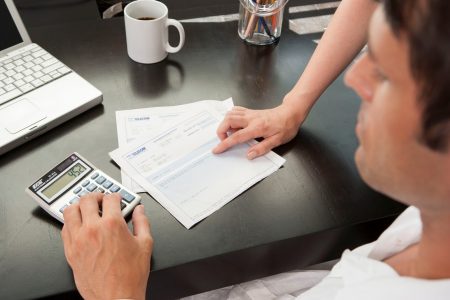Wage garnishment is a legal procedure where a portion of your earnings are automatically deducted to pay your debt. In some states, creditors may garnish up to 25% of your disposable earnings for child support, spousal support, or other court-ordered payments. Disposable earnings are gross income minus deductions required by law, such as taxes or … Read more
Yes. If you have filed bankruptcy, you should still apply for a credit card. The credit card issuer will look at your income and expenses. If your income is above the federal poverty level, you should be able to qualify for a credit card. You will also need to be able to make your monthly … Read more
Fair Debt Collection Practices Act (FDCPA) is a federal law that regulates the debt collection practices by debt collectors. This law applies to all the debt collectors—law firms, businesses, and collection agencies—that collect or attempt to collect consumer debts. According to FDCPA, debt collectors cannot use any unfair or deceptive practices while collecting the debts. … Read more
An eviction is the last step before the landlord takes your personal belongings. The landlord needs to follow the correct procedures in order for you to be evicted. There are some ways to stop an eviction. If you know you‘re going to be evicted, you can contact your landlord and try to negotiate to stay … Read more
The term bankruptcy encompasses a large number of federal and state laws that apply to debtors with either large or small debts. Bankruptcy laws are designed to provide debt relief to individuals who cannot pay their creditors. Bankruptcy laws provide an orderly process for the liquidation of assets and discharge of debts. There are two … Read more
Can tax debt be discharged in bankruptcy? Yes. And no. The first thing to understand about bankruptcy is that it is a legal procedure created by Congress. There is no such thing as “discharging“ tax debt. What there is, is discharging a tax debt. The statute that allows for bankruptcy also allows for the discharge … Read more
Some people say bankruptcy is for cheaters and scammers looking for a quick fix out of a tough situation. This is simply not true. The bankruptcy process was designed to be a tool of assistance for those who find themselves over their head with financial hardship. Further, the majority of people who end up needing … Read more
Depending on the type of debt you have and the laws in your state, you may only be able to wipe out certain types of debt in bankruptcy. You may also be able to wipe out debt that creditors are unlikely to try to collect on. Chapter 7 Bankruptcy The effects of Chapter 7 bankruptcy … Read more
You can, but it will be more difficult. Even after bankruptcy, a lender will look at your ability to repay the loan. The lender will look at your income, debt and your ability to save and invest for emergencies. What is a secured loan after bankruptcy? Secured loans are loans that are backed by a … Read more
Credit counseling is a service offered by nonprofit organizations, called credit counseling agencies, or credit counselors. Credit counselors work with you to develop a plan to reduce and repay your debt. These plans can be tailored to fit your situation and are often free. Credit counselors often work to negotiate lower interest and fees with … Read more






















